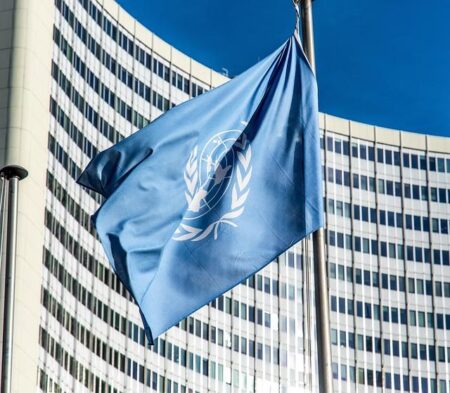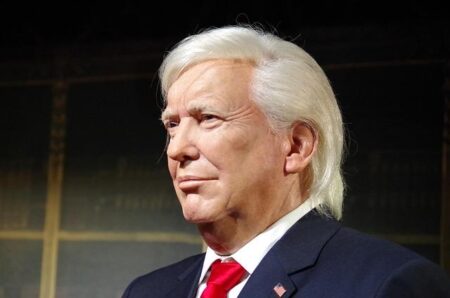Canadian Prime Minister Carney embarks on a historic journey to India, driven by a bold vision to strengthen the ties between the two nations. This landmark visit shines a spotlight on ambitious plans to boost trade, attract investment, and build powerful strategic alliances
Browsing: trade relations
Germany’s recent push to reshape its ties with China highlights the delicate balancing act between bold economic goals and rising geopolitical strains. The WSJ takes you inside Berlin’s gripping quest to navigate this complicated diplomatic landscape
Uruguay and Argentina have surged ahead as the first Mercosur members to ratify the EU trade pact, opening the door to deeper and more dynamic trade ties between South America and Europe, WRAL reports
Carney embarks on an exciting journey of overseas trade missions, kicking off with India. These visits aim to forge stronger economic ties and boost bilateral trade, paving the way for dynamic global partnerships in a fast-evolving market landscape
Kazakhstan and Italy are set to ignite a powerful economic alliance as their bilateral trade reaches record-breaking heights. With bold ambitions to expand cooperation across key industries, both nations are on the brink of an exhilarating new era of shared growth and opportunity, reports Qazinform
Brazil is gearing up to ramp up its chicken exports to India, Reuters reveals. This bold strategy seeks to tap into India’s rapidly growing market, fueled by evolving trade policies and a soaring appetite for poultry products
Germany is calling on the EU to stand together with a bold, unified response to US tariffs, highlighting the critical need for a clear and decisive European stance as trade tensions escalate. This urgent appeal reflects growing concerns over the wide-reaching impact on transatlantic economic ties
India has postponed its eagerly awaited trade visit to Washington, citing changes in U.S. tariff policies, a source told CNBC. This delay underscores the dynamic and complex nature of the ongoing trade negotiations between the two nations
China’s private sector is undergoing a powerful transformation as government policies tighten their hold, propelling state-owned enterprises into the spotlight. This shift signals the dawn of a bold new era marked by increased regulatory scrutiny and a strategic reshaping of the economy
China shock: Can Merz take on Germany’s toughest rival? As trade and technology battles heat up, CDU leader Friedrich Merz rises to confront China’s growing influence, signaling daring new moves for Germany’s foreign policy
China has delivered a bold message to former President Trump, showcasing its formidable control over U.S. dollar debt and underscoring Beijing’s vital role in sustaining global financial stability, Asia Times reports
The US-India trade deal teeters on the edge as key issues-oil pricing, tariffs, and agricultural exports-stall critical negotiations. Experts caution that with essential details still unresolved, the true impact of the agreement remains clouded in uncertainty
Germany’s “China Shock,” revisited by the Rhodium Group, reveals exciting new insights into how China’s economic surge is continuously transforming German manufacturing. This study highlights powerful shifts in trade, supply chains, and the competitive landscape of the industry
The U.S. is uniting its allies to forge a strong trade bloc aimed at slashing reliance on China for vital minerals, strengthening supply chains amid escalating geopolitical tensions, CNBC reports
The Philippines and the United Kingdom are eager to strengthen their trade partnership by 2026, aiming to boost economic collaboration and open up exciting new market opportunities in a dynamic global landscape
China’s decision to slash tariffs on whisky takes effect this Monday, dramatically cutting import costs and paving the way for a surge in sales. This bold move underscores Beijing’s dedication to strengthening trade ties amid a growing global appetite for premium spirits
The recent US visit to Argentina’s Patagonia highlights thrilling opportunities to strengthen mining and logistics partnerships, aiming to boost supply chains and drive robust economic growth across the region’s key resource industries
In response to shifting U.S. trade policies under Trump, India and the European Union are forging stronger economic ties, aiming to boost trade and investment amid global uncertainties-ushering in a bold new era of strategic partnership
Brazilian meatpackers are urging the government to adopt an EU-style Hilton quota system for beef exports to China, aiming to unlock greater market access and ensure steady trade amid soaring demand, DatamarNews reports
Former President Trump has issued a striking warning to Canada, threatening to slap 100% tariffs over its trade agreement with China. He warned sharply, “China will eat Canada alive.” This bold stance escalates the already fierce tensions in the ongoing US-China trade war




















